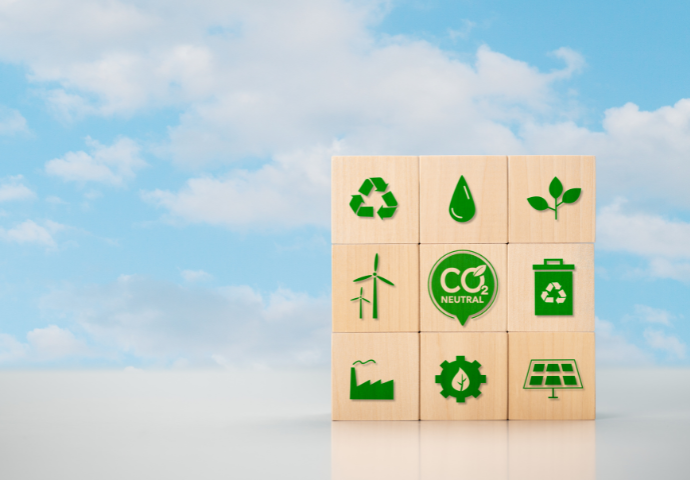This was highlighted in the Annual Climate Change Strategy and Carbon Management Plan report, presented at the Environment and Community Scrutiny Committee, held on Thursday 5 October 2023.
The report is carried out on an annual basis to note the council’s progress in meeting its Climate Change Strategy (2021 to 2026) objectives, to mitigate and adapt to climate change in the city.
It provides an update on the progress the council made in 2022/23 to deliver on projects that reduced the council’s direct carbon emissions which include emissions from the council’s corporate buildings, fleet vehicles and business travel.
Approximately half of this year’s reduction is the result of action the council took to reduce gas usage at its swimming pools, with the remainder made up from changes in activity such as the reduced use of the council’s crematorium as well as the continuing greening of the national grid.
Highlights from this year’s report include:
- Reducing emissions of council owned buildings through projects such as installing air source heat pumps and making energy efficiency upgrades to Parkside and Abbey Pools and exploring the potential to develop a City Centre Heat Network, which could possibly generate renewable heat and hot water
- Investing £2.5 million from 2020/21 to 2022/23 to retrofit 264 council homes with energy efficiency and low carbon measures to reach a minimum Energy Performance Certificate C and building 537 new council homes (of which 448 are already complete) to high sustainability standards, with a commitment to build 1,000 more homes to Passivhaus standards where feasible. As part of this programme, 3 Passivhaus pilot schemes are currently on site
- Securing funding for a new £6.1m solar farm in Waterbeach to provide renewable electricity to charge up to 20 vehicles at the Greater Cambridge Shared Waste Service depot. The Greater Cambridge Shared Waste Service is a shared service between Cambridge City Council and South Cambridgeshire District Council
- Commencing the installation of a planned network of more than 600 electric vehicle (EV) charging points in council carparks and on-street residential areas and replacing three refuse collection vehicles with electric vehicles (with another one expected soon)
- Promoting sustainable food in Cambridge by supporting Cambridge Sustainable Food and working in partnership with local voluntary and community groups like CoFarm
- Delivering actions to improve the city’s resilience to climate change including working with local partners, improving tree canopy cover and biodiversity.
The council has also focused on supporting residents and businesses and other organisations to reduce emissions by:
- Funding Cambridge Carbon Footprint to develop and deliver climate change focused training sessions for residents to empower them to make practical and impactful changes what will reduce their carbon footprint
- Developing a Retrofit Guide, which is based on the common property archetypes in Cambridge, to help residents with which carbon reduction measures they could install in their property to reduce energy consumption in their home
- Supporting Cambridge schools working towards an Eco-School Green Flag Award during 2022/23 by funding the schools’ application costs using money generated by Fixed Penalty Notices (FPNs)
- Bringing together key partners, including businesses, universities, and public sector organisations through the City Leaders Climate Change Group. All participants work together to identify ways to collectively reduce carbon emissions to increase the impact across the city
- Developing the Green Business Programme (part-funded by the Government) with Huntingdonshire District Council, South Cambridgeshire District Council and Cambridgeshire & Peterborough Growth Hub, so that small to medium sized businesses in Cambridgeshire can access advice and funding to reduce their emissions.
Cllr Rosy Moore, Executive Councillor for Climate Action and Environment, said: “We have come a long way both as a council and as a city and it is great to see that we are moving in the right direction and continue to do so year after year.
“However, it is important to remember that we still have a way to go if we are to reach our joint vision for the city to be net zero by 2030. That means that we need to keep working together, as one city, to do this.
“In 2019, the council declared a climate emergency and since then we have been working to deliver projects to reduce the council’s emissions and to empower residents and business to do the same where possible and in an impactful way.”
Image: Pavel Muravev , Getty Images via Canva


